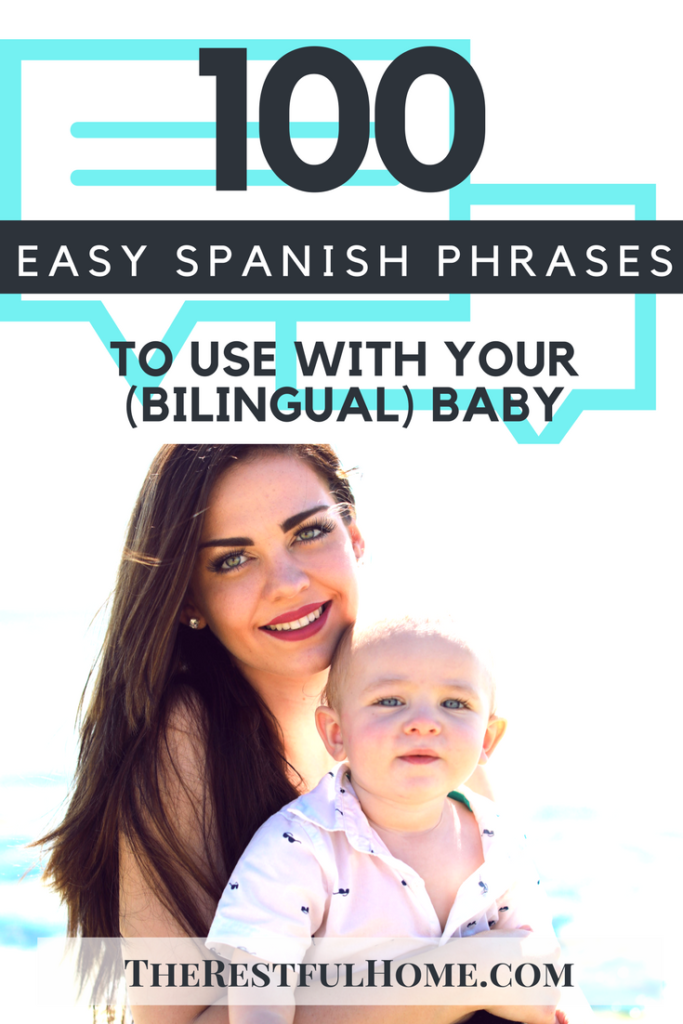
These 100 Spanish phrases may be helpful to you if you, like me, are:
- convinced that raising your child in a bilingual or multilingual environment is ideal
AND - not completely bilingual yourself.
They could also come in handy if you’re going to be volunteering at a Spanish-speaking orphanage, school, or simply living at home with a Spanish-speaking host family that has children.
Since I’m trying to give Baby J a bilingual home, I’m always trying to incorporate Spanish into our daily life. Sometimes, that means asking my native Spanish speaker friends for help with common Spanish phrases that are child-appropriate! Sometimes, I remember the words from my time volunteering at an orphanage in Honduras. Here is a collection of the Spanish phrases I find myself needing most often while at home with my sweet little boy. (A few are added that I will use more as he gets older.)
100 Useful, Easy Spanish Phrases to Use at Home with Your Baby or While Volunteering Abroad with Children
Simple Commands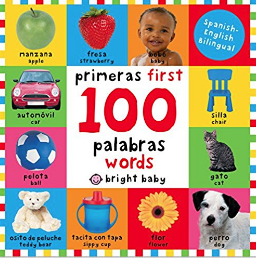
- Siéntate – Sit down.
- Ven acá – Come here.
- Acuéstate – Lie down. (I use this a lot at naptime or when I need to change his diaper.)
- Cómetelo – Eat it up.
- Come – eat (coma is more forceful)
- A comer – Time to eat.
- Vete por ahí – Go over there. (Remember that the “h” is silent.)
- No la toques – Don’t touch it. (Or No lo toques, depending on whether the article the child wants to touch is masculine “el” or feminine “la.”)
- No toques – Don’t touch.
- Dame la mano – Give me your hand.
- Toma mi mano – Take my hand.
- Ponte los zapatos – Put on your shoes.
- Con cuidado / Ten cuidado – Be careful.
- Mira – Look! (This is an easy one for a new Spanish speaker to learn. My husband often joins me in saying, “Mira!” when we want Baby J to look at something he’ll enjoy seeing.)
- Dale la vuelta – Roll over. (When encouraging a young baby to practice rolling over.)
- Muy calladito / calladita – Be very quiet.
- Camina – Walk (camine would be a more forceful command)
- No corras – Don’t run.
- A la cama – Off to bed!
- Hazlo de nuevo – Do it again.
- Dime otra vez – Tell me again.
- Cuéntame – Tell me. (Like telling a story. I say this encouragingly when Baby J is babbling and sounds as though he’s telling an involved baby story!)
- Ven a bañarte – Come take a bath. (duchar is to shower; bañar is to bathe)
- Ven a vestirte – Come get dressed.
- Lávate las manos – Wash your hands.
- Vámanos – Let’s go.
- Rápido – quickly.
- Apúrate – Hurry up.
- Tranquilo/cálmate – Calm down.
- Abre la boca – Open your mouth.
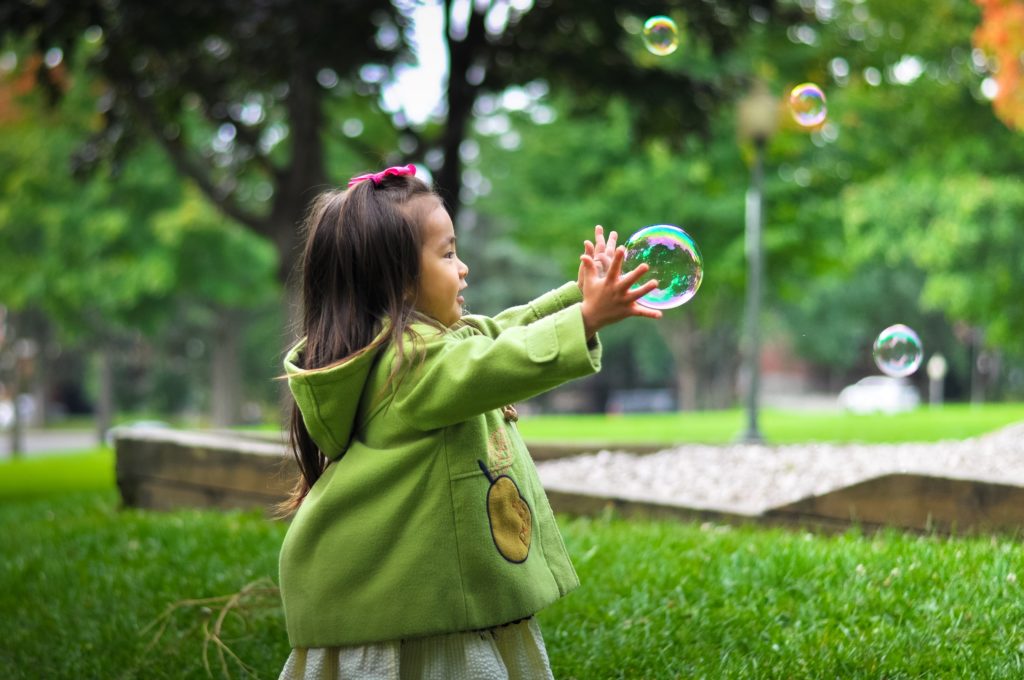
Photo by Leo Rivas.
Mira las burbujas, mami! – Look at the bubbles, Mommy!
Simple Requests
- Ayúdame, por favor – Help me, please. (I use this a lot as I dress him, asking him to help by pushing his hands through the sleeve, or “entre la manga.”)
- ¿Te ayudo? – [Do you want me to] help you?
- Dame un abrazo, por favor – Give me a hug, please?
- ¿Besitos para mami? – Kisses for Mom?
- Tráigamelo, por favor – Bring it to me, please.
- Acércate a mami, por favor – Come closer to Mom, please.
- No dientes, por favor – No teeth, please. (Unfortunately, I have a little biter.)
- Enséñame, por favor – Show me, please.
Common Questions
- ¿Tienes hambre? – Are you hungry?
- ¿Tienes sed? – Are you thirsty?
- ¿Quieres agua? – Do you want water?
- ¿Tienes popo? – Do you have a poopy diaper? (Yes, this is life with a baby. Get used to it. More society-appropriate: ¿Tienes un pañal sucio?)
- ¿Necesitas un nuevo pañal? – Do you need a new diaper? (Believe it or not, my one-year-old will sign “please”/por favor when I ask this question and he has a dirty diaper.)
- ¿Quieres leer? – Do you want to read? (Here’s a list of some bilingual books and other resources we use.)
- ¿Te gusta? – Do you like it?
- ¿Quieres más? – Do you want more?
- ¿Acabaste? / ¿Terminaste? – Did you finish? Are you done?
- ¿Quieres ir con mami/papi? – Do you want to go with Mommy / Papa?
- ¿Dónde estás? – Where are you?
- ¿Para dónde vas? – Where are you going?
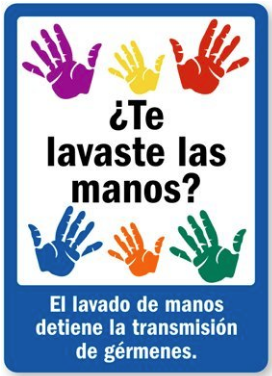
- ¿Te duele? – Does that hurt you? / Are you hurting? (If the child is fussing and you’re trying to figure out what’s wrong. Another useful phrase is “Me duele” – That hurts me/ I hurt.)
- ¿Qué dice? – What does he/she/it say? (For example, “¿Qué dice el monito?” – “What does a monkey say?”)
- ¿Te lavaste las manos? – Did you wash your hands?
- ¿Tienes sueño? / estás cansado/a – Are you tired/sleepy?
- ¿Qué quieres? – What do you want?
- ¿Qué pasa? – What’s going on? (I ask this when he is fussing about something and there’s obviously nothing wrong.)
- ¿Dónde está el otro calcetín? – Where is your other sock? (Because…kids these days!)
Polite Spanish Phrases
- ¿Cómo amaneciste? – How are you this morning/ How did you sleep? (Literally, a very polite “How did you dawn/rise?”)
- Buenos días – Good morning.
- Buenas noches – Good night.
- ¿Tomaste una buena siesta? – Did you have a good nap?
- De nada / Con mucho gusto – You’re welcome.
- Por favor – please
- Qué descanses – Sleep/rest well!
- Para servirte – At your service
Encouragement
- Qué bien – really good
- Buen trabajo – Good job!
- Tu puedes – You can do it!
- Bien hecho – Well done!
- Intenta otra vez – try again.
- Lo hiciste bien – you did it well!
- Me gusta – I like it.
- Eso – that’s it! (This was the first word in any language Baby J responded to, by wiggling happily and smiling.)
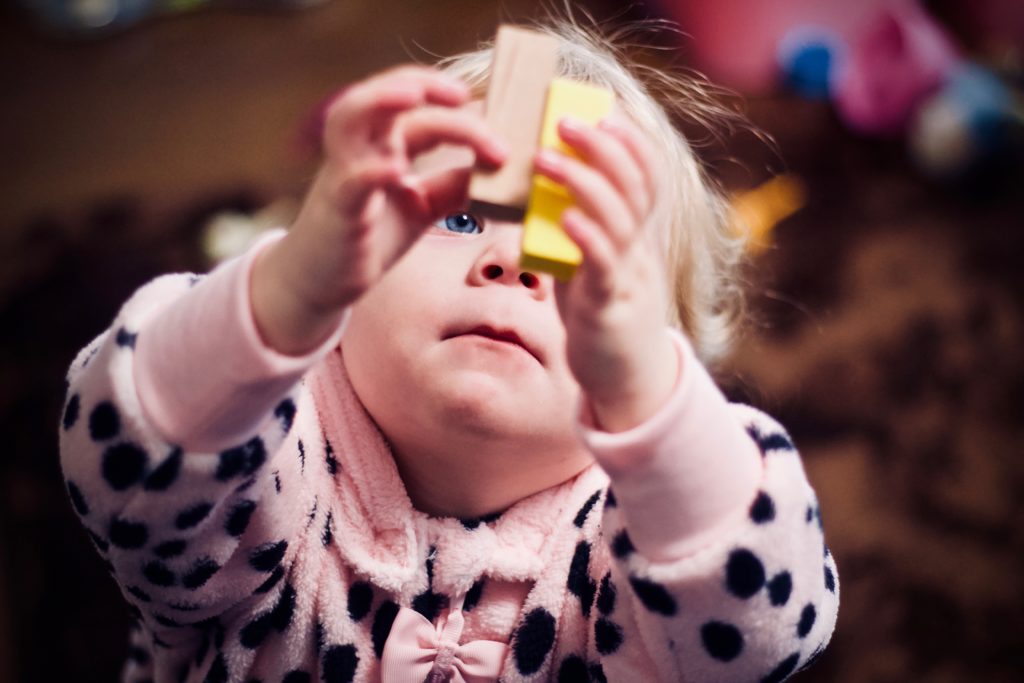
Photo by Jelleke Vanooteghem. ¿Estás jugando? – Are you playing?
Endearments
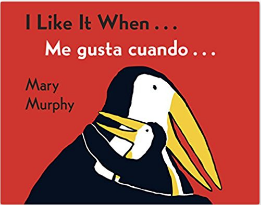
An inexpensive board book on Amazon.
- mi tesoro – my treasure
- mi cielito – literally, my little sky. (For example, Vamos, mi cielito, te acostaré. = Let’s go, my darling, and I’ll put you to bed.)
- mi amiguito – my little buddy/friend (amiguita is for a little girl)
- mi amor – my love (mi amorcito would be like my little love)
- Te amo / te quiero – I love you.
Spanish Phrases/Commands for Older Children
- Apaga la luz – Turn off the light.
- Cierre la puerta. – Close the door.
- Pon la mesa – Set the table.
- Tiende la cama – Make the bed.
- Guarda los juguetes – Pick up the toys.
- Te toca – It’s your turn.
- Me toca – It’s my turn.
- Gané – I won.
- Ganaste – You won.
- Cepíllate los dientes – Brush your teeth.
- Cepíllate el pelo – Brush your hair.
- Vaya a jugar – Go play.
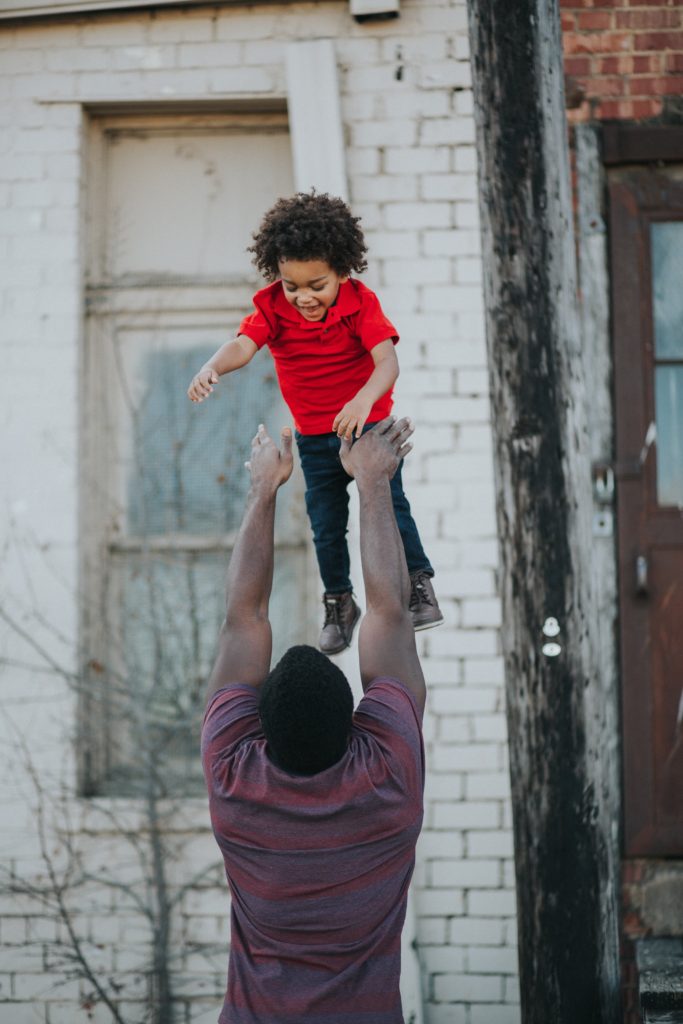
Photo by Conner Baker. Otra vez, Papi! – Do it again, Daddy!
A Few Common Words Used with Babies
- guácala – gross (Latin American colloquial word I heard often in Honduras – small children often think it sounds funny!)
- baba – slobber (I just had to ask someone about this word, because teething days are upon us! And babero is bib, just so you know.)
- pañal – diaper (Actually, in Honduras I usually heard the brand name “Pampers.”)
- las pompis – bottom (the “nicer” word for butt)
- boquita – little mouth
- deditos – little fingers
- limpio – clean
- sucio – dirty
- comida – food (leche is milk)
- cosquillas – tickles (Quieres cosquíllas? – Do you want to be tickled?)
You can often consult a dictionary if it’s just a single word you need help with–there are plenty of free Spanish dictionary apps and other resources. Or, if you have a smart home with Alexa, install her Spanish tutor.
Want to Print This List for Use in Your Home?
Below is the free printable in pdf format. (If it doesn’t work for you, sign up for our emailing list, let me know you’d like the printable, and I’ll email it to you!)
Click here to download the list of 100 Useful Spanish Phrases!
If you’re providing a Spanish/English bilingual home for your baby, what are some of the most common Spanish phrases/words you use? How about those of you who are making a home bilingual in English/another language?
Please let us know in the comments! We’d love to hear from you.
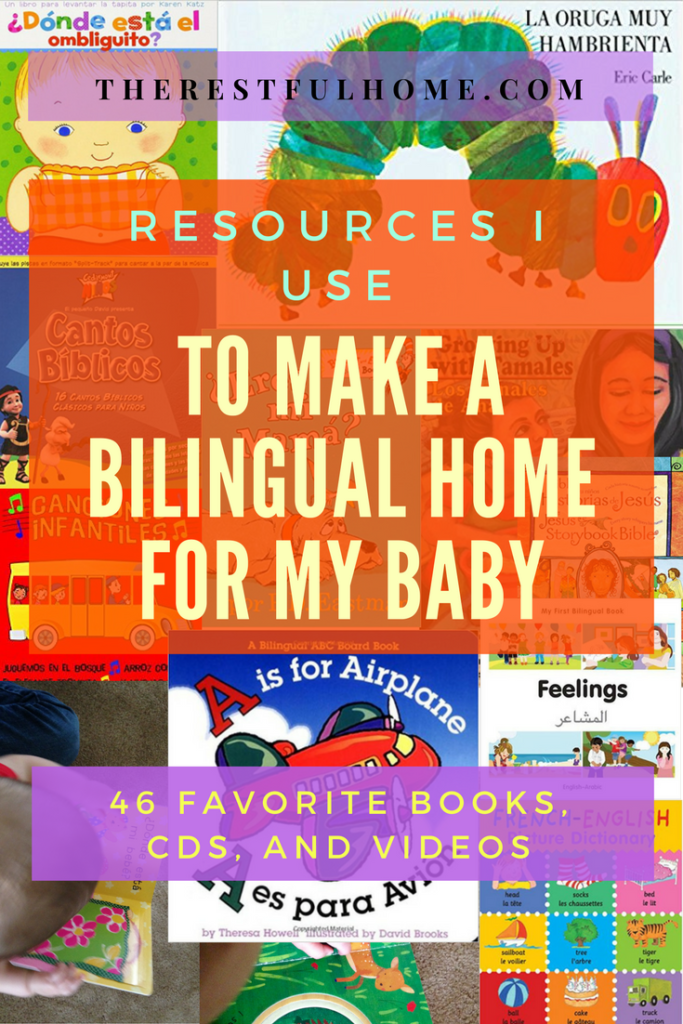


 : a favorite place to walk when we can!
Once
: a favorite place to walk when we can!
Once 
![The first photos are of my parents’ sprawling rural Arkansas garden. The last is of my tiny little beds in the big city. Plants bring life to even the smallest corner!
I’ve been reading some beautiful fiction this year, and I just posted a review of a book by one of my favorite authors, Leif Enger. (https://therestfulhome.com/brave-young-handsome-review/ in your browser, or click on the link in my Instagram profile) If you don’t have time to read the book, though, here’s just a quote or two for your enjoyment:
🎼
“Death arrived easy as the train; [he] just climbed aboard, like the capable traveler he was.”
🛤️
On riding a horse: “You are a feeble and tenuous being; the only thing a horse wants from you is your absence.” 🐎 😄
#quotes #leifenger #amreading #gardens #gardening](https://scontent-atl3-1.cdninstagram.com/v/t39.30808-6/468657020_18342474787176025_4442629541396867851_n.jpg?_nc_cat=108&ccb=1-7&_nc_sid=18de74&_nc_ohc=DEja6UP2ct4Q7kNvgEYJxCM&_nc_zt=23&_nc_ht=scontent-atl3-1.cdninstagram.com&edm=ANo9K5cEAAAA&_nc_gid=AA4bBsvQ_JpqZXLUPUTpTC8&oh=00_AYCjI9LUx-cJxe6cu0n7H1Gounaz92aBlTrQacnKut8umg&oe=67567CAB)

















I’m so glad I came upon this list! I took 4 years of Spanish in high school and although I’m at a basic conversational level, I’m rusty on command form or when speaking directly to baby. Thank you! This was so helpful
So glad to hear this!
This is wonderful. Thank you!
Hi, I’m from Colombia and As you I try to teach English to my daughter since she was born. I use similar phrases and she understands everything I say, but I feel that I always say the same things all the time, maybe because she hardly says a word and can’t reply to me. If you want we can work together I can help you with Spanish and you with English. What do you(whoever wants to) think
That’s wonderful! Puede ser interesante ver cómo aprende un bebé cuando todavía no habla. Entienden mucho más de lo que pensamos.
Catherine, thank you for taking time to say thanks!
Thank you so much for this info. I have been search for weeks now for something like this for my baby some time of these she already knows and I will definitely teacher her the rest from your list. Thank God I came on your page very impressive. Keep up the great work. Muchísimas gracias y Dios te lo bendiga!
Gracias a Ud. por dejar un comentario. Que Dios les bendiga a Ud. y su bebé.